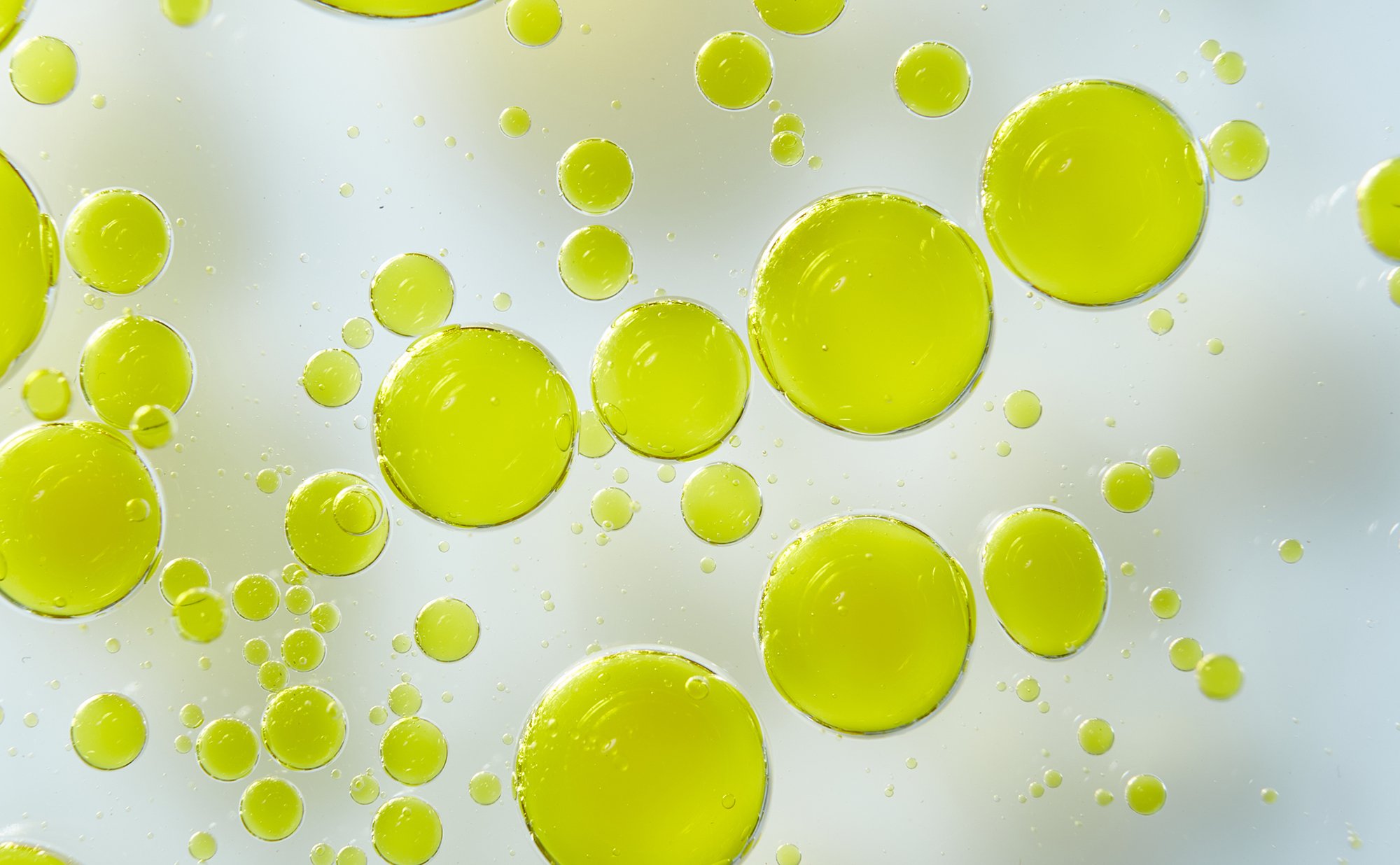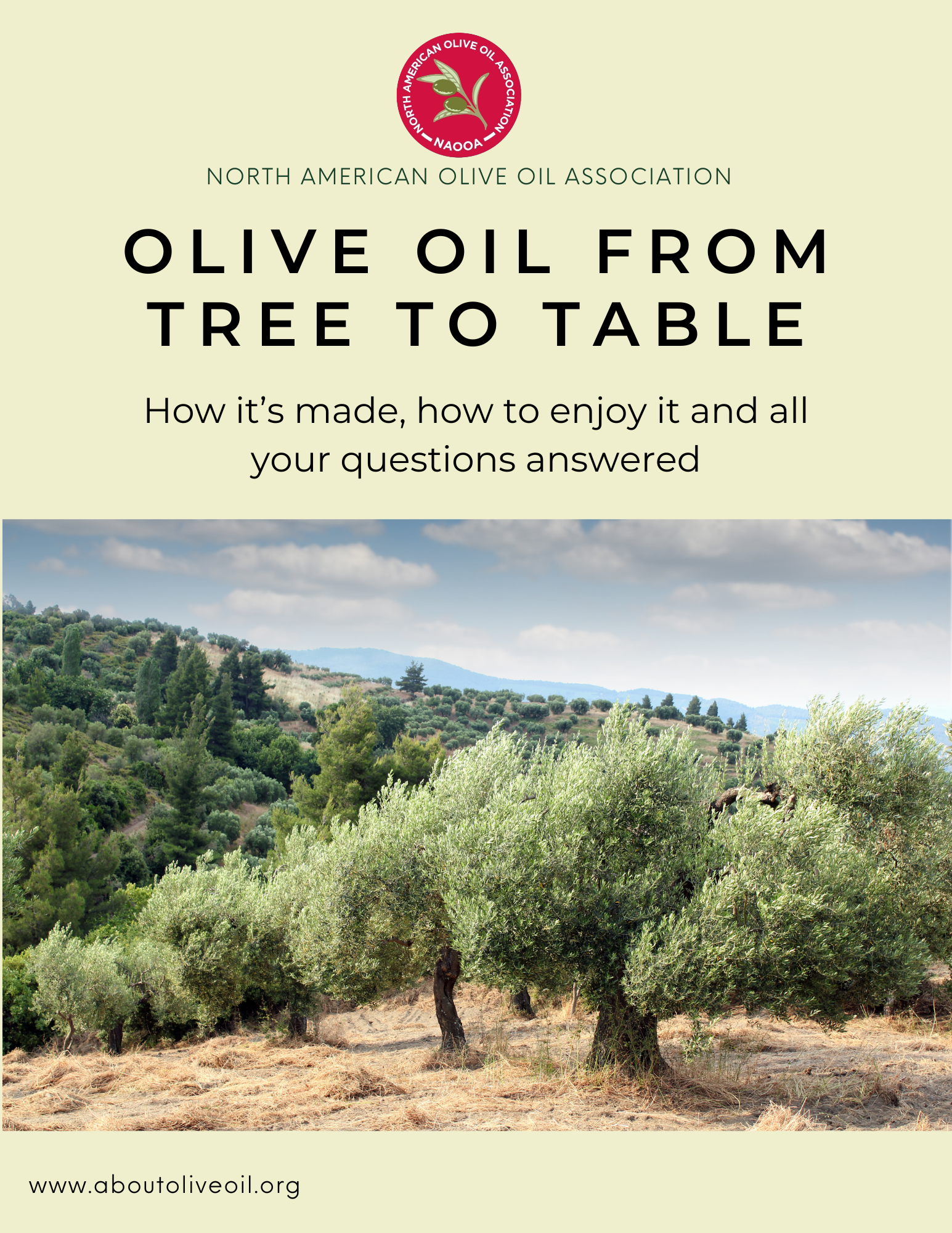A recent study found that high doses of oleic acid—a fat found in olive oil—can lead to fat cell growth in mice under lab conditions. Contrary to the study's title, it did not test olive oil or look at what olive oil does in our bodies. There's no evidence that consuming olive oil "drives fat cell growth" or causes weight gain. To the contrary, a recent U.S. study of over 90,000 adults found that people who eat more olive oil tend to gain less weight over time.
The Study: Lab Conditions, Not Real Life
This study, published in Cell Reports, looked at how different types of fat affect fat cell development in mice. It found that oleic acid could increase fat cell formation in a lab setting and when fed to the mice in very high amounts.
Unfortunately, the university’s press release about the study—titled “New Research Shows Excessive Oleic Acid, Found in Olive Oil, Drives Fat Cell Growth”—was misleading. The study didn’t test olive oil at all, but the headline made it sound like it did. The press release also used dramatic language, calling certain fat precursor cells “fat cell soldiers” and comparing them to “an army” that grows when exposed to oleic acid.
This kind of wording makes it seem like eating olive oil spawns phantom soldiers in your body that will cause you to gain weight. But that’s not what the research showed.
The press release also leaves out an important point: the study used pure oleic acid in a lab, not in the form of food. That’s not how people or even mice eat fat in real life. It also ignored other research that shows very different—and much more positive—results when people actually eat olive oil as part of their diets.
Oleic Acid Is a Healthy Fat
While the recent mouse study raises questions about oleic acid in isolation, it's important to remember that oleic acid is widely recognized as a healthy fat. It’s the main monounsaturated fat in olive oil and has been studied for decades for its positive effects on heart health, inflammation, and metabolic function. Numerous clinical trials and population studies have found that diets rich in oleic acid—especially from sources like olive oil, avocados, and nuts—are linked to lower risk of heart disease, better blood sugar control, and improved cholesterol levels. Rather than being harmful, oleic acid is a key reason why the Mediterranean diet is considered one of the healthiest in the world.
It is settled nutrition science that monounsaturated fats like oleic acid decrease blood lipid oxidation relative to using vegetable seed oils (corn, safflower, soybean, sunflower oils), which, due to a high polyunsaturated fat content, readily oxidize. Excess oxidation contributes to inflammation and all chronic diseases. This led the U.S. Food and Drug Administration to approve a qualified health claim for the consumption of oleic acid in place of other less healthy fats, in recognition of its documented role in reducing the risk of coronary heart disease.
Real-World Evidence Says the Opposite
In contrast to this animal lab study, real-world data suggests that olive oil does not cause weight gain—and may actually help prevent and treat obesity.
A major population-based study published in The American Journal of Clinical Nutrition followed over 90,000 people in the United States. It found that greater consumption of olive oil was associated with less weight gain, especially when it replaced less healthy fats like vegetable oils, butter, or margarine.

This research builds on decades of evidence from clinical trials and observational studies that consistently link olive oil to better weight management, cardiovascular health, and metabolic function.
We Should Study Food, Not Just Molecules
Nutrition science works best when it studies whole foods and real diets, not just isolated nutrients in a lab. Lab studies like the recent one can help scientists understand how certain fats behave at a cellular level—but that doesn’t mean we can apply those results directly to how people eat.
As Mary Flynn, associate professor of medicine and clinical educator at Brown University, explained in an article in Olive Oil Times:
“In the past, it was very common to discuss nutrients. My interest in olive oil led me to realize one needed to discuss food sources of the nutrient, not the nutrient itself.”
This is especially important when it comes to oleic acid, the fat studied in the recent research.
“If you look at the figures, they did not test olive oil,” Flynn added. “Oleic acid may, on a cellular level, increase adipocyte production more than other fatty acids, but since they did not test olive oil, refined or extra virgin, it is not an issue for olive oil.”
Giving mice large amounts of isolated oleic acid in a lab is nothing like adding a tablespoon of extra virgin olive oil to your salad, or drizzling some on your vegetable barley soup. In the real world, olive oil is typically eaten as part of a healthy, balanced diet—especially in Mediterranean-style eating patterns, where it’s a staple food and widely associated with long-term health benefits.





